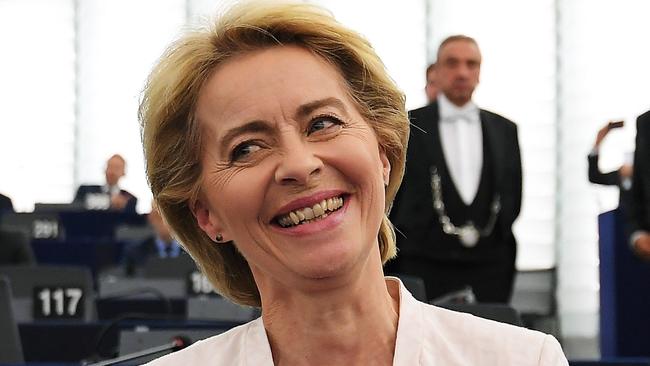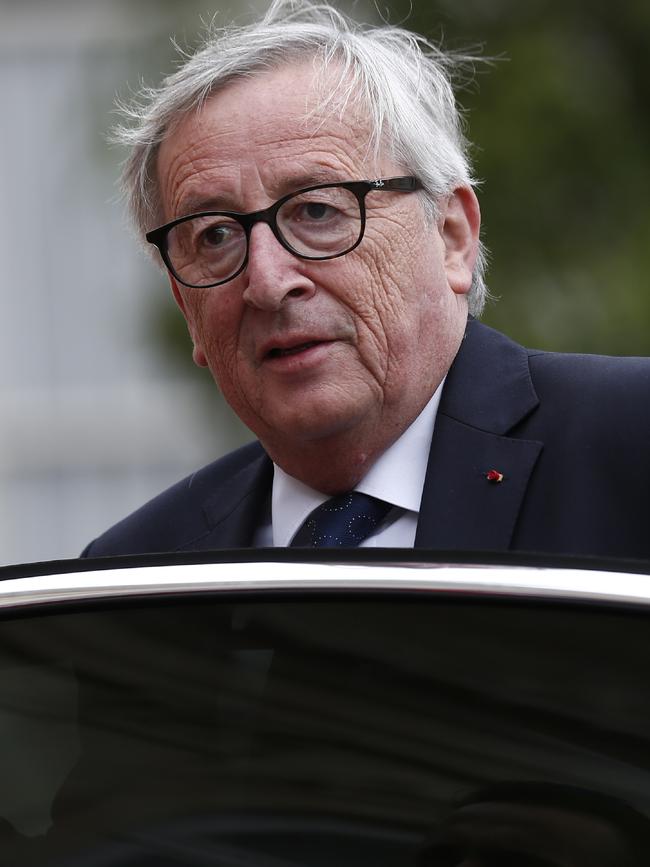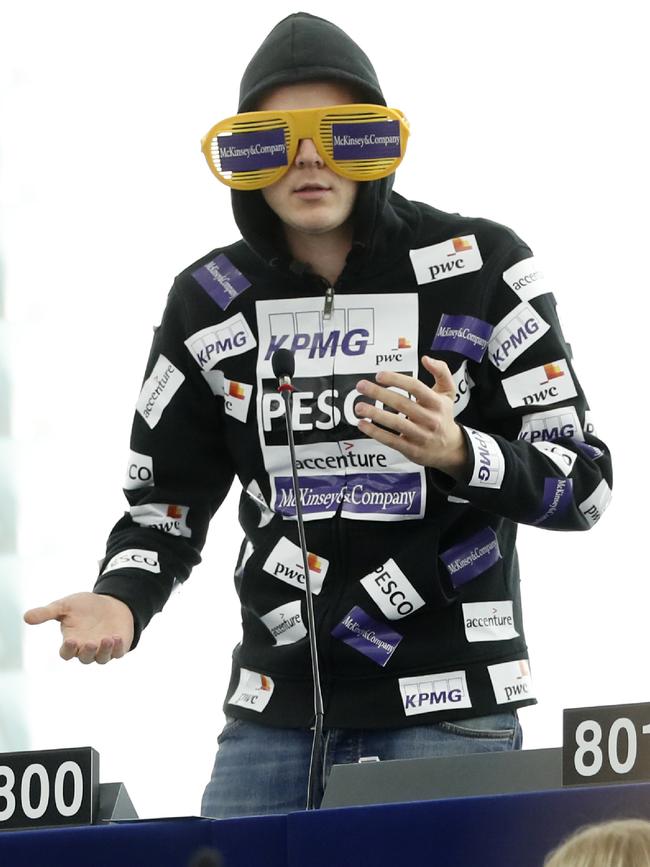Merkel’s ally scrapes home to head up the European Commission
Ursula von der Leyen has scraped across the line to be appointed president of the European Commission.

Ursula von der Leyen scraped across the line to be appointed president of the European Commission, the heavyweight role to represent the interests of the 27 leaders of the EU, with the hand of Chancellor Angela Merkel working firmly behind the scenes.
Ms von der Leyen has been a close political ally of Ms Merkel for more than a decade and most recently has been her defence minister, so it was no surprise to see one of Ms von der Leyen’s and Germany’s pet projects, the European army, included in her mandate speech to the European parliament.
She will succeed Jean-Claude Juncker on October 31.

The parliament approved Ms von der Leyen’s anointment, but only just. she achieved the majority required by nine votes, and only with a last-minute change of heart by the Eurosceptic Italians and right-wing Poles.
The Italians backed her because of promises to redistribute migrant inflows away from the southern states, while the Poles acceded to Ms Merkel’s lobbying to Polish Prime Minister Mateusz Morawiecki. Poland is now expected to have a prominent place on the commission and European support to move away from relying on Russian gas.
Ms von der Leyen had also tried to win liberal votes by promising a range of policy changes, including EU minimum wages and unemployment benefits, a climate-neutral plan for 2050, and a humane migration plan.
On Brexit, she will allow a further extension, but she has reinforced that there will be no movement on the Irish backstop, putting the EU against the new British leader, either Boris Johnson or Jeremy Hunt, on an immediate collision course and the likelihood of a no-deal Brexit.
But it is Mrs von der Leyen’s strong preference for a European army that is attracting interest.
In her speech, she hinted at reinforcing a reinvigorated German-Franco alliance by talking about EU foreign policy decisions taken by a “qualified majority’’.
She said: “We must have the courage to take foreign policy decisions by qualified majority. And to stand united behind them.
“The cornerstone of our collective defence will always be NATO. We will stay trans-Atlantic and we have to become more European.
“This is why we created the European Defence Union.’’
Earlier this year, Ms Von der Leyen wrote in German business newspaper Handsblatt about forming a special European committee to be informed early on about crisis scenarios as they take shape.

“That could speed up decision-making processes at the national level, as well as strengthen support for any military action,’’ she wrote.
“Among European nations, Germany and France are the driving forces in defence.’’
Ms Von der Leyen, 60, is a former gynaecologist and mother of seven, who was born in Brussels to a German family.
She has been battling a corruption scandal in her German defence portfolio where consultancies were awarded without proper tender.




To join the conversation, please log in. Don't have an account? Register
Join the conversation, you are commenting as Logout